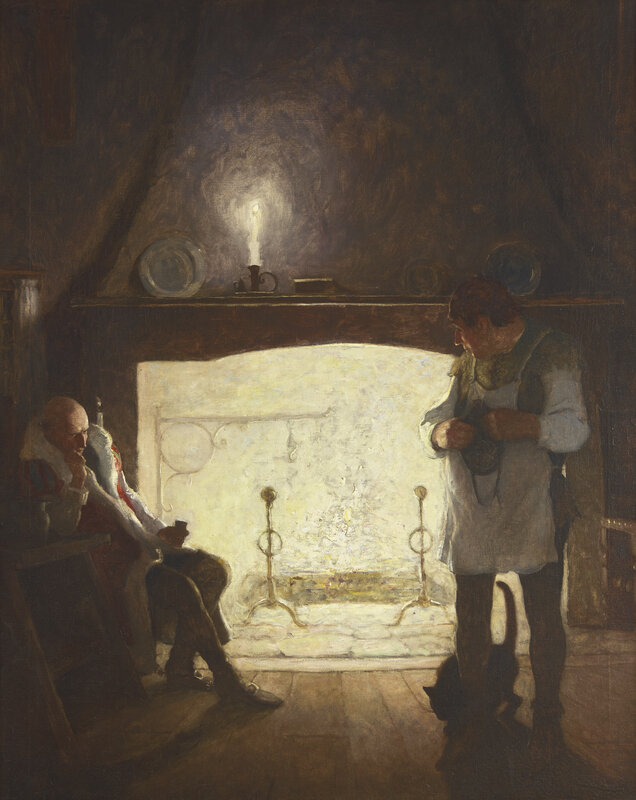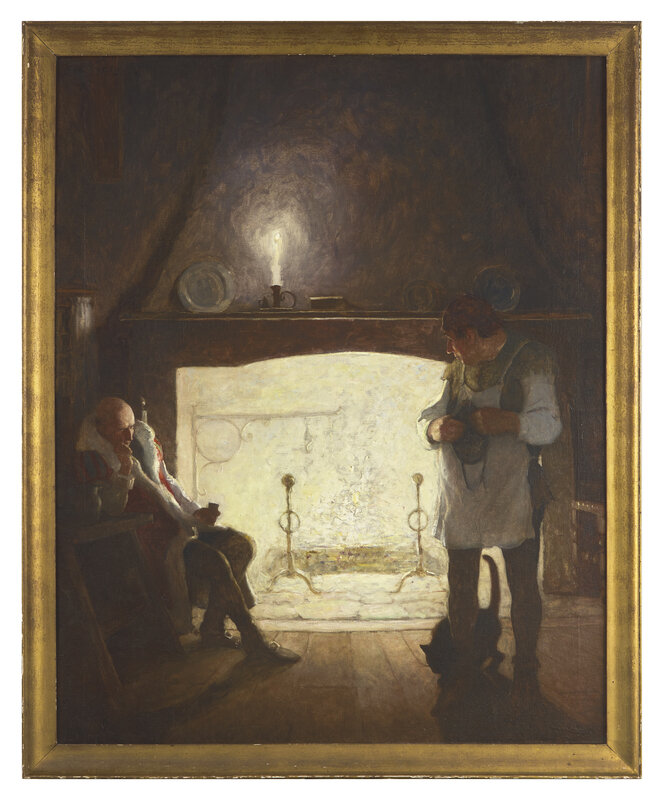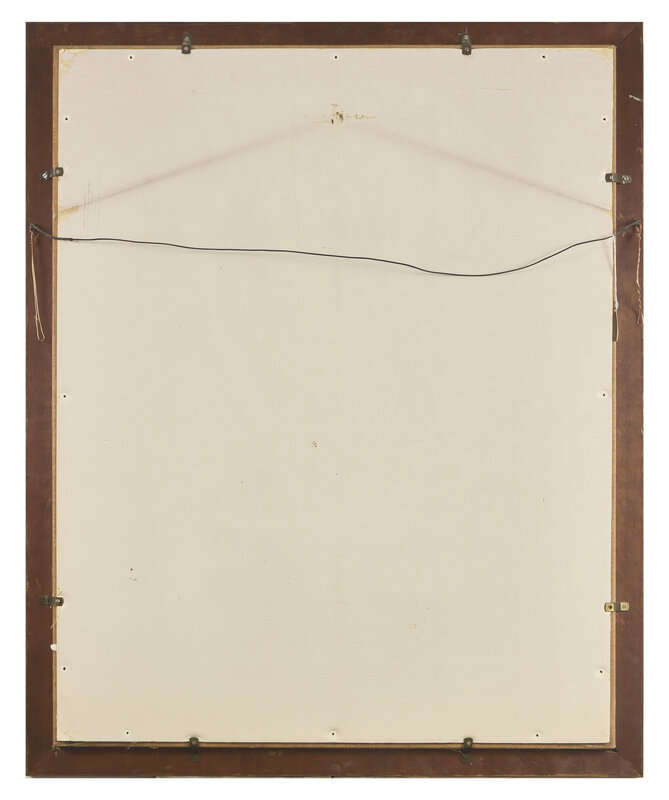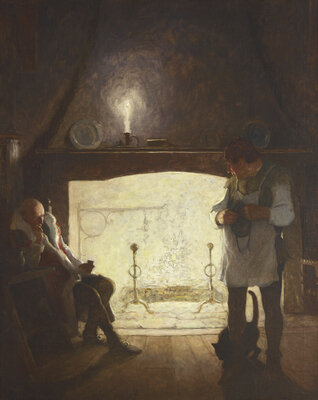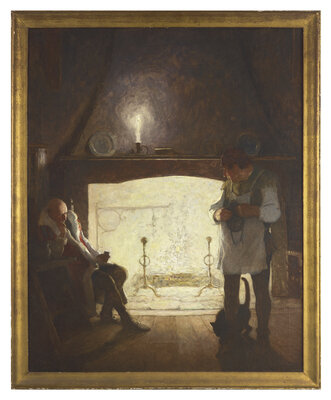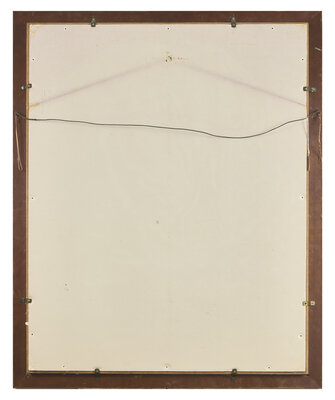Condition Report
Contact Information
Auction Specialist
Lot 124
N. C. Wyeth
(American, 1882-1945)
"Now, mark me, mine host," Sir Daniel said, "follow but mine orders and I shall be your good lord ever," 1916
Sale 2105 - American Art and Pennsylvania Impressionists
Dec 8, 2024
2:00PM ET
Live / Philadelphia
Own a similar item?
Estimate
$120,000 -
180,000
Price Realized
$127,000
Sold prices are inclusive of Buyer’s Premium
Lot Description
N. C. Wyeth
(American, 1882-1945)
"Now, mark me, mine host," Sir Daniel said, "follow but mine orders and I shall be your good lord ever," 1916
oil on canvas
signed N. C. WYETH (upper left)
40 1/4 x 32 1/8 in.
Provenance:
Charles Scribner's Sons, 1916-1923.
Julian Pearce Smith (Scribner's editor), Upper Montclair, NJ.
Private Collection, New Jersey.
Literature:
Douglas Allen and Douglas Allen, Jr., N. C. Wyeth, The Collected Paintings, Illustrations and Murals (New York: Crown Publishers, Inc., 1972), p. 219.
Christine B. Podmaniczky, N. C. Wyeth, A Catalogue Raisonné of Paintings (London: Scala, 2008), I.607, p. 322.
Accessible on the Brandywine Museum of Art's online Catalogue Raisonné at https://collections.brandywine.org/ncwcr, no. NCW: 1164.
Lot Essay:
N. C. Wyeth's illustrations for Robert Louis Stevenson's The Black Arrow bring to life the tumult of the Wars of the Roses, a period of English history marked by political intrigue and bloody conflict. A particularly striking example is the present lot, "Now, mark me, mine host...," in which cunning, ruthless antagonist, Sir Daniel Brackley, issues a sinister command to the keeper of the Sign of the Sun inn in Kettley, where the former had been dispatched to quell "opposition from the tenants" there. Wyeth's illustration captures the tension and menace of the moment, as offered by Stevenson:
"By two in the morning, Sir Daniel sat in the inn room, close by the fireside, for it was cold at that hour among the fens of Kettley. By his elbow stood a pottle of spiced ale. He had taken off his visored headpiece, and sat with his bald head and thin, dark visage resting on one hand, wrapped warmly in a sanguine-coloured cloak. At the lower end of the room about a dozen of his men stood sentry over the door or lay asleep on benches; and somewhat nearer hand, a young lad, apparently of twelve or thirteen, was stretched in a mantle on the floor. The host of the Sun stood before the great man."
Wyeth underscores the moral ambiguity of the story and the near-constant threat of violence that hangs over its characters. Sir Daniel's words, "Now, mark me, mine host," issued with chilling authority, are animated by Wyeth's pointed manipulation of light and shadow. The innkeeper, a seemingly ordinary man caught in the crossfire of a larger conflict, is, here, transformed into a figure of both vulnerability and potential defiance (relative to Brackley's rent-collecting manipulations). Wyeth, across the balance of his Black Arrow contributions, offers a suitable–and suitably dramatic–analogue to Stevenson's themes of loyalty and betrayal, justice and revenge, and the corrupting influence of power.
